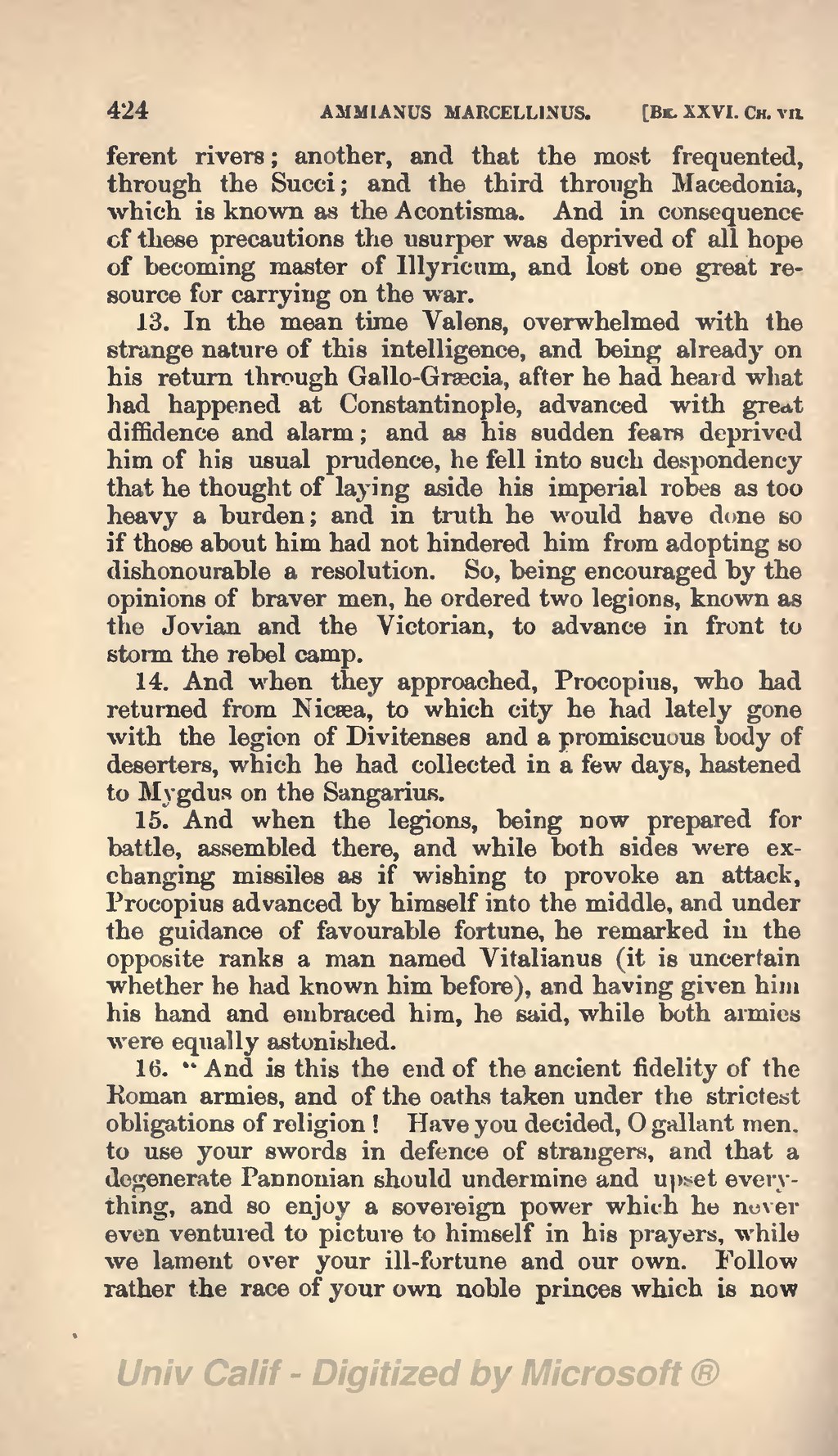rivers; another, and that the most frequented, through the Succi; and the third through Macedonia, which is known as the Acontisma. And in consequence of these precautions the usurper was deprived of all hope of becoming master of Illyricum, and lost one great resource for carrying on the war.
13. In the mean time Valens, overwhelmed with the strange nature of this intelligence, and being already on his return through Gallo-Graecia, after he had heard what had happened at Constantinople, advanced with great diffidence and alarm; and as his sudden fears deprived him of his usual prudence, he fell into such despondency that he thought of laying aside his imperial robes as too heavy a burden; and in truth he would have done so if those about him had not hindered him from adopting so dishonourable a resolution. So, being encouraged by the opinions of braver men, he ordered two legions, known as the Jovian and the Victorian, to advance in front to storm the rebel camp.
14. And when they approached, Procopius, who had returned from Nicaea, to which city he had lately gone with the legion of Divitenses and a promiscuous body of deserters, which he had collected in a few days, hastened to Mygdus on the Sangarius.
15. And when the legions, being now prepared for battle, assembled there, and while both sides were exchanging missiles as if wishing to provoke an attack, Procopius advanced by himself into the middle, and under the guidance of favourable fortune, he remarked in the opposite ranks a man named Vitalianus (it is uncertain whether he had known him before), and having given him his hand and embraced him, he said, while both armies were equally astonished.
10. "And is this the end of the ancient fidelity of the Roman armies, and of the oaths taken under the strictest obligations of religion! Have you decided, O gallant men, to use your swords in defence of strangers, and that a degenerate Pannonian should undermine and upset everything, and so enjoy a sovereign power which he never even ventured to picture to himself in his prayers, while we lament over your ill-fortune and our own. Follow rather the race of your own noble princes which is now in
